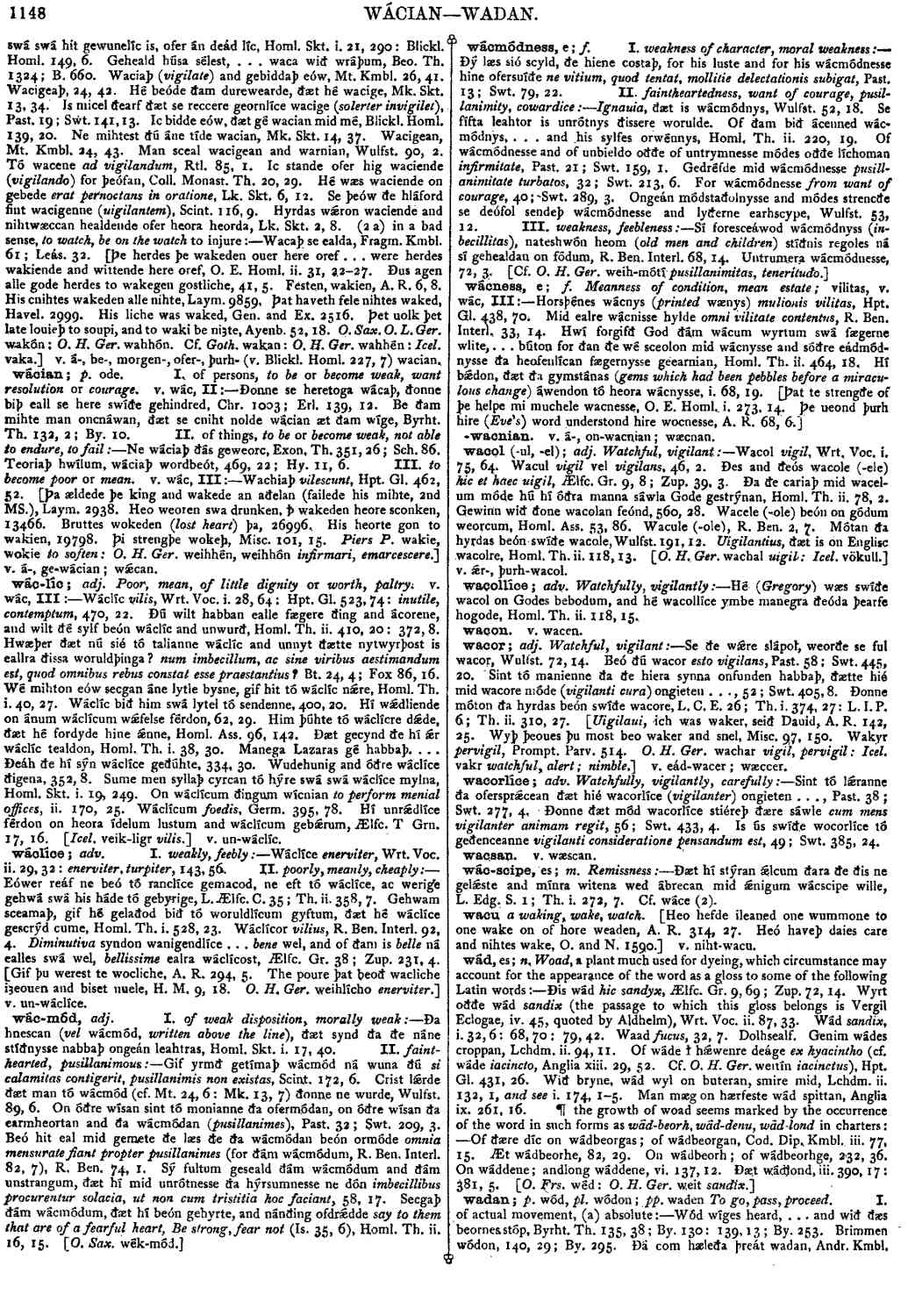wácian
- verb [ weak ]
-
Ðonne se heretoga wácaþ, ðonne biþ eall se here swíðe gehindred,
- Chr. 1003; Erl, 139, 12.
-
Be ðam mihte man oncnáwan, ðæt se cniht nolde wácian æt ðam wíge,
- Byrht. Th. 132, 2; By. 10.
-
Ne wáciaþ ðás geweorc,
- Exon, Th. 351, 26; Sch. 86.
-
Teoriaþ hwílum, wáciaþ wordbeót,
- 469, 22; Hy. 11, 6.
-
Wachiaþ
vilescunt,
- Hpt. Gl. 462, 52.
Bosworth, Joseph. “wácian.” In An Anglo-Saxon Dictionary Online, edited by Thomas Northcote Toller, Christ Sean, and Ondřej Tichy. Prague: Faculty of Arts, Charles University, 2014. https://bosworthtoller.com/34187.
Checked: 0